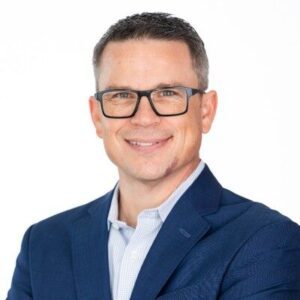|
Getting your Trinity Audio player ready...
|
In 2010, Clayton Christensen, renowned professor at Harvard Business School and author of The Innovator’s Dilemma introduced a concept that every founder must eventually confront: the choice between being Rich or being King.
Here’s how he put it:
“Some people want to be rich, and some people want to be king. Those who want to be king will not let go of control. Those who want to be rich will give others the power and the glory so that the enterprise can grow.”
This idea emerged from Christensen’s research into why some promising ventures fail to scale. He observed that many founders, consciously or not, optimize for control rather than value creation. That decision is often made quietly, in boardrooms or internal dialogue, and becomes the ceiling for the company’s potential.
Few firms start with scaling in mind so most founders start as a king or queen. But, if you’re the founder of a firm doing $3M+ in revenue, this is no longer an abstract question. It’s the question.
The Fork in the Road
Founders don’t often say out loud that they want to be king. They don’t have to. It shows up in their decisions.
In who they hire, or don’t.
In how they compensate employees.
In whether or not they’re willing to step out of the center.
But to grow past a certain point, you can’t have it both ways. You have to choose. Control and scale the firm are on a collision course. If you’re not honest with yourself about which you value more, you’ll constantly make decisions that are out of sync with your true priorities.
You’ll say you want to grow, but resist sharing equity.
You’ll say you want to scale, but veto any decision you didn’t initiate.
You’ll say you want freedom, but structure the firm around your presence.
The result? A firm that’s stuck. A founder who’s frustrated. A team that’s disengaged.
That’s why it’s so important to get clear and stay aligned with what you really want.
Four Questions to Reveal Your True Intentions
Here are four questions to help you surface your real mindset. Don’t answer based on what you think you should want. Answer based on what your decisions have already shown or what you’re truly willing to do. Be honest with yourself.
1. Do I want to make every decision, or do I want to build a firm that doesn’t need me?
This gets to the heart of control. If you still want to sign off on every hire, every proposal, and every strategic initiative, then growth will always depend on you. That’s a king mindset. If you’re willing to empower others, even if it means they’ll do things differently than you would, you’re moving toward a rich mindset.
2. Do I view equity as power, or as a tool to attract top talent?
Founders who want to be king protect their equity and don’t share it. Those who want to be rich use it as a multiplier. They’re willing to give up a piece of the pie if it means growing a much larger one. Your answer here reveals how you think about ownership: is it about control, or leverage?
3. Am I building a firm that can scale and sell? Or is the firm a job I happen to own?
This is about endgame clarity. If you’re designing your business to run without you, with strong systems and a leadership team that can thrive in your absence, you’re building an asset. If everything still flows through you, you’ve created a very demanding job. Neither is wrong but only one leads to a big exit.
4. Would I rather be in control or financially free?
This is the ultimate tradeoff. You can’t keep all the control and expect to build a firm with high enterprise value. Wealth creation requires letting go. Letting go of ego, of decision rights, and being the sage on the stage. The founders who become wealthy with life-changing exits are the ones who learn how to scale themselves out of the business.
Choose with Eyes Wide Open
The point isn’t to shame one path or glorify the other. Both have tradeoffs. Confusion happens when you say you want one outcome and keep making decisions that lead to another.
If you want to be king, own that. Build a lean, profitable firm that gives you autonomy and identity. There’s nothing wrong with that.
But if you want to be rich, if your vision is to grow, scale, and sell your firm, then you’ve got to start behaving like it. That means giving up some control. Start developing strong leaders who are better than you in their lanes. Set up processes and systems that make the firm less dependent upon you. Tackle the Founder Bottleneck.
For founders standing at similar crossroads, this decision underscores the importance of introspection, community, and expertise. Collective 54 is the community for professional services founders who are serious about making more money, making scaling easier, or making an exit achievable.
Apply to Collective 54 today, and join a community of founders building firms that scale.

